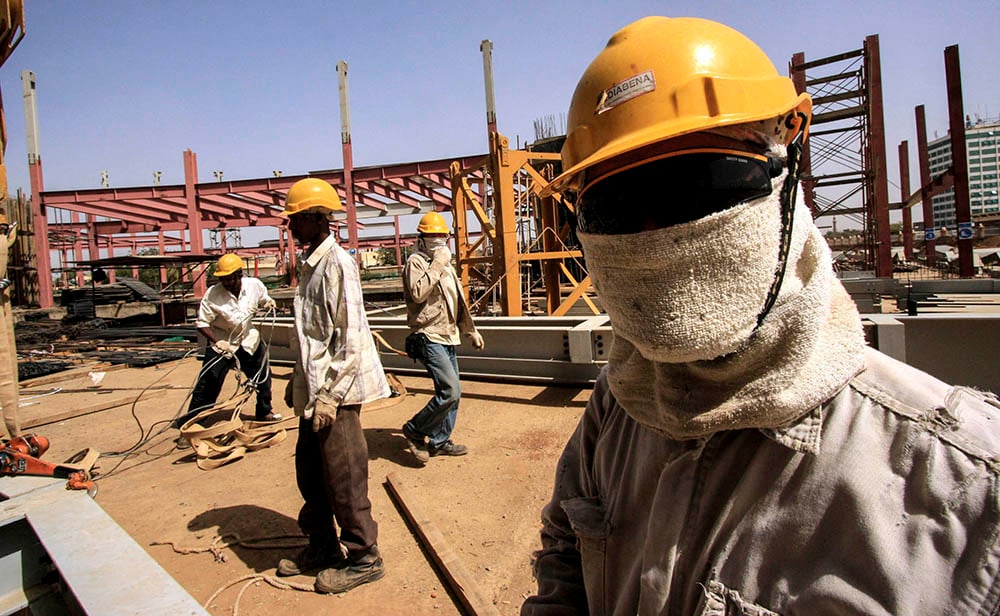President Jacob Zuma and President Xi Jinping of China arrive at the Union Buildings for bilateral talks on trade links.
NEWS ANALYSIS
Africa is not a country, even if the organisers of this week’s historic Forum on Africa and Chinese Co-operation (Focac) act as though it is.
Close to 40 African heads of state are travelling to Johannesburg to meet with China’s President Xi Jinping for the first summit of its kind on African soil this weekend.
Xi paid an official visit to South Africa in the run-up to the summit, to place the focus on issues such as the trade imbalance between the country and its biggest trading partner. South Africa has also hosted an unprecedented number of debates and conferences on relations with China in the past few days.
The 15th anniversary of Focac was originally meant to be a ministerial-level meeting but was “upgraded” to a summit of African leaders – a feather in the cap for South Africa following the controversy around the presence of Sudan’s President Omar al-Bashir at the June summit of the African Union in Johannesburg.
Al-Bashir is not attending the summit, nor are the newly elected president of Burkina Faso, the president of São Tomé and Príncipe and the king of Swaziland because of the relations between the three countries and what China considers the “rebel province” of Taiwan.
Morocco, the only African country that is not a member of the AU, will also be represented at the summit.
The idea that Africa speaks with one voice when meeting China is reinforced by the fact that the AU has official status as a member of Focac and that AU Commission chairperson Nkosazana Dlamini-Zuma’s flagship project Agenda 2063 has been included in the theme of the summit.
Yet relations with the Asian giant are not all on the same level. In South Africa, the Chinese presence in the country dates back to the 19th century and China’s recent huge investments in corporates such as Standard Bank are less visible in South Africa’s more diversified economy, but China’s presence is much more obvious in less-developed African countries.
Getting a clear picture of the state of relations between individual African countries and China is complicated by a lack of accurate data. Even China-Africa experts admit that figures of the number of Chinese in Africa range from one million to two million.
“China-Africa relations do not exist in a vacuum,” says Yu-Shan Wu, a researcher at the South African Institute for International Affairs. Wu emphasised at a media briefing last week that the nuances and complexities of the relations should not be overlooked. “Perceptions are important,” she said, speaking about the contentious issue of the illegal trade in wildlife between countries such as Tanzania and China.

Chinese engineers at a construction site in Sudan’s capital, Khartoum. (Mohamed Nureldin Abdallah, Reuters)
Tension between African citizens and Chinese informal traders, for instance, has also sometimes soured relations between China and countries such as Ghana and Nigeria.
These have been offset by the economic benefits of trade and Chinese investment in projects such as infrastructure, hospitals and sports stadiums. Following the promises made by Xi at the COP21 climate summit in Paris this week, emphasis is now also being placed on much-needed renewable energy projects.
China is investing in major solar energy projects in Zimbabwe, where Xi paid a visit to President Robert Mugabe on Tuesday.
Xi is expected to make an announcement of more Chinese loans to Africa this weekend, as has been the case at previous Focac meetings, but experts warn that the dwindling demand for raw materials should temper this expectation.
“Focac comes at a critical juncture with the slump in commodities. There is a rethink of relations in Africa and also in China,” said Romain Dittgen of the South African Institute for International Affairs.
China is the seventh biggest investor in Africa, but these investments dropped more than 40% in the first half of 2015, compared with last year.
The big announcements made at summits such as these should also be scrutinised as very little detail is given about which countries are benefiting. Some of the megaprojects announced in countries such as Angola and the Democratic Republic of Congo as far back as 2006 have, for example, not been realised to date.
On the political front, opposition parties in many African countries question the tendency for China’s links with the continent to be driven by government-to-government relations, with little or no regard for democratisation or human rights.
Zimbabwean opposition leaders told the local NewsDay website this week that they are sceptical of the announcements of major Chinese investments.
“All we will have are speeches and hot air about this being a historic visit,” People’s Democratic Party spokesperson Jacob Mafume said about Xi’s visit.
Guinea’s former dictator Lansana Conte is quoted in the book La Chinafrique as saying the Chinese were a welcome alternative to “the whites that still act like colonials”.
The premise of the book is that, in time, China will supplant the close networks between French politics and business and Francophone Africa, often dubbed Francafrique.
Recently China invested in a major hydroelectric plant in Guinea, one of West Africa’s potentially rich but struggling economies.
One issue African leaders agree on is that industrialisation is key to the future development of their countries, especially with the drop in commodity prices and the expectation that changes in China’s economy will lead to its more low-end jobs being exported elsewhere.
For now, Ethiopia is one of the few African countries where manufacturing by Chinese companies has taken off, but China is still shifting the bulk of these jobs to countries such as Vietnam that are geographically closer to it.